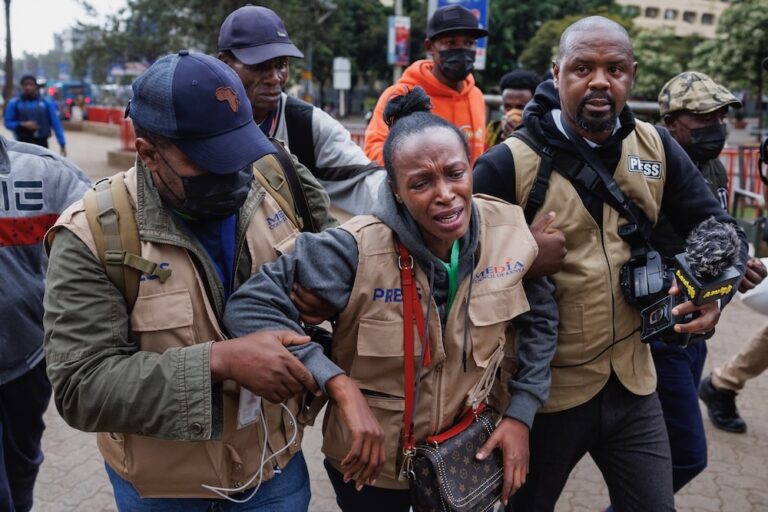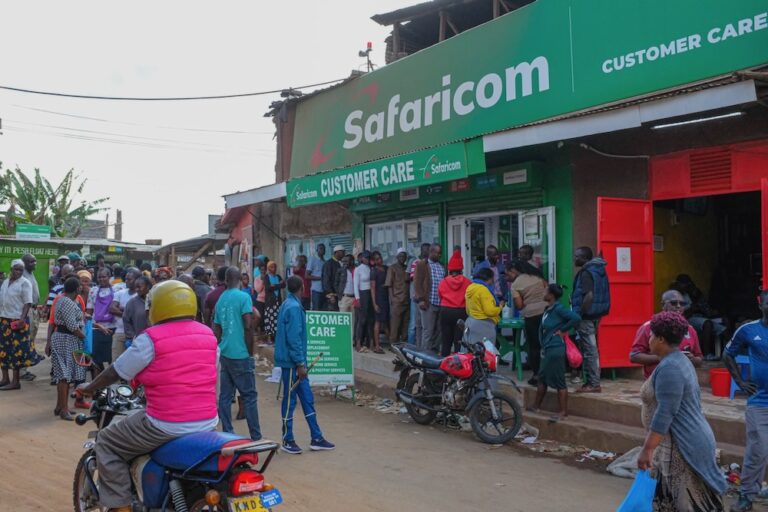(FXI/IFEX) – In a 3 December 2002 statement, the FXI condemned the actions of the Kenyan police on the weekend of 30 November to 1 December, during which they arrested, manhandled and detained two South African journalists in the Kenyan coastal city of Mombasa. According to media reports, independent foreign service reporter Beauregard Tromp and […]
(FXI/IFEX) – In a 3 December 2002 statement, the FXI condemned the actions of the Kenyan police on the weekend of 30 November to 1 December, during which they arrested, manhandled and detained two South African journalists in the Kenyan coastal city of Mombasa.
According to media reports, independent foreign service reporter Beauregard Tromp and “Star” photographer Mujahid Safodien were arrested on the evening of 30 November, allegedly after being “fingered” by a police informer, and because of their “Middle Eastern appearance”. They were harassed, threatened and forced to accompany police officers to a local police station where they were subjected to questions and intimidation about their presence in the city. No reasons were given for their arrest and detention, nor were they allowed to contact officials at the South African High Commission in Nairobi for assistance. Subsequently, when Safodien tried to take pictures after the police officers forced the journalists to drive from the station to their hotel and back, he was physically manhandled. The two were eventually released on the night of 30 November but their passports were withheld until the following day, when again they were subjected to further interrogation.
The FXI stated that these reprehensible acts of state violence against journalists and media practitioners must be condemned in the strongest terms possible. Under the Kenyan Constitution, no person may be arrested arbitrarily and without being informed of the reasons for their arrest. The FXI argued that this fundamental guarantee, which underpins the principle of due process, cannot be subverted merely because the government needs to enhance its prosecution of the war against terrorism. The FXI observed that unfortunately, human rights and fundamental freedoms in Kenya appear to be honoured more in their breach than respect by the KANU government.
The FXI further stated that media repression is rife in Kenya and local and foreign journalists have been subjected to physical attacks, arrests, intimidation, detention, malicious prosecution, defamatory action with punitive damages and the closure of media houses. The FXI cited the 2001 index on the status of media freedom in the world by the United States-based human rights body Freedom House, which listed Kenya as a country where there is “No Freedom” of the press (see IFEX alerts of 1 December and 30 November 2001).
The FXI urged the Kenyan government to take immediate action against the police officers involved and also to issue an unequivocal apology to the two journalists for the unwarranted violation of their basic human rights. In the same context, the FXI urged the Kenyan government to adhere to its constitutional, regional and international conventional requirements and respect the right of the media to operate freely without due interference in the country. While acknowledging that the crime of terrorism was despicable to the extreme, the FXI argued that the fight against it cannot be used as an excuse to infringe on the basic rights and freedoms of Kenyans or any other person present within the country.


